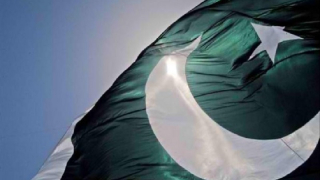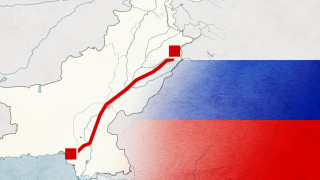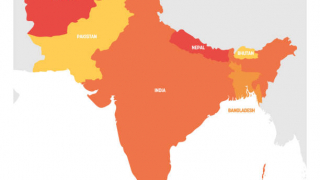CPEC – Rising Significance despite Covid Crisis
24.07.2020
CPEC is a significant consensus reached by the two countries. The Chinese leaders attach great meaning to the development of CPEC. In May 2013, Chinese Premier Li Keqiang anticipated the proposal of CPEC during his visit to Pakistan. During President Xi Jinping's visit in April 2015, both sides agreed to promote a "1+4" pattern of economic cooperation, featuring a central role of the CPEC and four key areas including the Gwadar port, energy, transportation infrastructure and industrial cooperation, so as to achieve win-win results and common development. Both sides agreed on the principles of scientific planning, step-by-step implementation, and consensus through consultation, mutual benefit and win-win results, as well as ensuring quality, safety, and environmental protection. During Prime Minister Imran Khan's visit to China, the two sides reaffirmed their complete consensus on the future trajectory of the CPEC, timely completion of its on-going projects and joint efforts for realization of its full potential with a focus on social-economic development, job creation and livelihoods and accelerating cooperation in industrial development, industrial parks and agriculture.
During the past 5 years, under CPEC, 11 projects have been completed while 11 projects are under construction. The total investment of the above 22 projects is around 18.9 billion USD. There are 20 more projects in the pipeline.
Being the biggest and most wide-ranging project under BRI initiative, CPEC is of great political, economic and social significance to China and Pakistan. Politically, it is a exhibition of the political eagerness of the two countries to promote Sino-Pakistan strategic partnership of cooperation; economically, it is a project that will bring joint development to the two countries; and socially, it is aimed at mobilizing the people to work together for the betterment of our two nations. Here are the few takes on CPEC project which involving or concerned parties need to realize and remember:
- In order to maintain its dominant position globally in the long term, the US must reckon with the ambitious geo-economics endeavor China has launched to project strategic influence across the Eurasian continent, which hosts most of the world’s economic centers and natural resources.
- Yet, over the time CPEC has threatened the very foundations of US hegemony. Its naval dimensions works in synergy with overland projects that span regions of critical geo-strategic value. China seeks to offset the US military primacy. China aims to advance its interests and exploit the cracks in US’s hegemony.
- China has emerged as a near competitor and began to project geo-economics influence beyond its vicinity. This strategy has started to yield results in the key region of Eurasia.
- China has nurtured bilateral relations with Iran, leveraging a common resentment towards western dominance. This partnership has great geostrategic importance to both nations. Here, Iran may help China withstand a possible US attack.
- CPEC might even be extended to Iran, Afghanistan and Central Asia.
- US has endeavored to help south Asian nations maintain their sovereignty since China is increasing its influence in the region.
- The fact of the matter is that CPEC is part of China’s grand nationalistic strategy to ensure that it remains in power.
- China really has no interest in seeing other nations win. Its aim is to serve its own interests.
- However, US should engage China so as to try to shape CPEC’s contours to their advantage, minimize the risk of war and encourage cooperation in domains such as counter-terrorism and global environment reforms.
- US need to acknowledge CPEC as a geo-strategic weapon, and it needs to develop a feasible and comprehensive counter strategy lest it finds itself alone with little control over its own global interests. Once inside, China will then be free to use its tactics to exert its influence and gain the leverage it may need to be used at a time of their choosing. This should instill considerable anxiety, dread and suspicion within the US and its allies.














